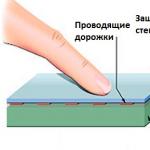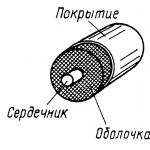Roaming SIM card for Cambodia Freeroaming has a number of advantages:
— Provides mobile Internet throughout the country with a single tariff;
— It also works in 70 other countries around the world;
- Allows you to make voice calls;
— The service for receiving and transmitting SMS messages has been opened;
— Possibility of distributing the Internet via Wi-Fi;
— There is no mandatory subscription fee;
— Connects on an anonymous basis without contracts;
— Does not require special knowledge of setting up mobile Internet.
Internet tariffs in Cambodia will be as follows:
 The tourist card works on the basis of an agreement on the provision of cellular communication services when using local operators in the host country. Let's talk a little about mobile communications in Cambodia.
The tourist card works on the basis of an agreement on the provision of cellular communication services when using local operators in the host country. Let's talk a little about mobile communications in Cambodia.
When traveling around Cambodia, you will definitely not be left without communication. Networks mobile operators well developed, have ideal coverage of more than 95% of the territory. There are 6 mobile operators in the country, one of which operates in the CDMA standard, and another one is still developing. We will focus on three main ones using GSM technologies: 2G, 3G, 4G. After all, it is this standard that is most common in Russia and our phone or tablet supports it.
 Metfone – the largest mobile operator in Cambodia. Serves9 million subscribers. NetMobitel works in three standards 2G,
3
G with very good coverage. 4
G Available for now only in major cities.
Metfone – the largest mobile operator in Cambodia. Serves9 million subscribers. NetMobitel works in three standards 2G,
3
G with very good coverage. 4
G Available for now only in major cities.
 Smart (Axiatra)
– the second largest operator by number of subscribers: more than 5.4 million subscribers. The operator's network has good coverage of 2G and 3G standards. 4G is also available, which is still at the implementation stage.
Smart (Axiatra)
– the second largest operator by number of subscribers: more than 5.4 million subscribers. The operator's network has good coverage of 2G and 3G standards. 4G is also available, which is still at the implementation stage.
 Cellcard (Mobitel/
CamGSM) is the third largest mobile operator in Cambodia by the number of subscribers. Has 2.5 million users voice communication and mobile Internet. Despite the large number of brands and tariff lines, it was not able to provide strong competition to the first two giants, and is still slowly growing its subscriber base. The operator's network also has good coverage, but is inferior in quality to other operators.
Cellcard (Mobitel/
CamGSM) is the third largest mobile operator in Cambodia by the number of subscribers. Has 2.5 million users voice communication and mobile Internet. Despite the large number of brands and tariff lines, it was not able to provide strong competition to the first two giants, and is still slowly growing its subscriber base. The operator's network also has good coverage, but is inferior in quality to other operators.
These three main networks will provide mobile internet in Cambodia when using a tourist card. The smartphone will automatically select the most suitable mobile provider and allow you to always stay in touch. Have a good trip!
Communications in Cambodia
With the proliferation of mobile phones, communications between the main cities of the country have improved significantly. Many city telephone lines were destroyed during the reign of the Khmer Rouge and have not yet been fully restored. This problem not only hinders business development, but also causes high prices for Internet services throughout the country, with the exception of Phnom Penh and Siem Reap. More recently, mail destined for Cambodia had to be collected in Bangkok. Now the quality of postal services has improved, but incoming letters that attract the attention of postal workers often disappear (for which there is no explanation).
All postal correspondence is sent to Phnom Penh. It is possible to send mail not only from the capital, but from other cities in the country, although this is more expensive since you additionally have to pay the cost of sending mail to Phnom Penh. In the capital itself, mail for delivery abroad is accepted only at the main post office.
Mail delivery to Europe, Australia and North America takes 5 to 10 days and is sent from Phnom Penh twice a week. Dispatch days can be checked at the main post office. Postcard stamps sent from Phnom Penh cost 1,800 riel to Europe and Australia and 2,100 riel to America. If you are sending a postcard from other cities, stamps will cost you 300 riel more.
The parcel can only be sent from Phnom Penh. When sending a package abroad, there is a very large fee of $17 per kilogram, so it is easier to send a package from Thailand if that is where you are heading. You will need to pay 3,000 riel to fill out a customs form (a description of the parcel and an estimate of its value), but it is not necessary to present the parcel itself.
Telephone connection
You can make domestic and international calls at post offices or telephone offices in most cities. Telephone services are provided state network Camintel, which, together with the Australian company Telstra, also operates public pay phones in Phnom Penh. To use a pay phone, you will need a calling card. Cards sell for between $2 and $50. With the Tele 2 card you can make international calls from any pay phone: dial the access code 007 (instead of the usual 001), then the country code and the number you need. Cost 1 minute international call is about $3. However, in online stores, small hotels and travel agencies you can find the price half that.
Domestic calls can be made at low cost in glass telephone booths. In this case, you need to pay directly to the person servicing the booth. Telephone booths not all telephone networks in the country are covered: the available numbers are usually written on the booth itself (usually these are the numbers of the operator MobiTel (code 012) and some other operators).
Faxing in Cambodia is very expensive: $3-$6 per page. In this case, contact the appropriate hotel services or online stores.
Mobile communications

The following operators operate in Cambodia mobile communications: M Phone (code 011), MobiTel (code 012), Beeline (code 090), Smart Mobile (code 010), Cube (code 013), MetFone (code 097). MobiTel is the largest operator and is present in all major cities, although calls can only be made within the city. A mobile phone can be rented upon arrival at Pochentong International Airport for approximately $28 per week. You can use it with a calling card (costing from $5 to $100). Most cities have points of sale with logos various operators. After purchasing a card, erase the protective layer under which the PIN code is located. Dial the number also written on the card and enter the PIN code to activate the card. A call within the same mobile network or to a landline costs about $0.20 per minute.
"I use a Smart SIM card. Calls to Russia cost $0.13 per minute. You just call +7 network code, subscriber number, the call quality is very good. As for the Internet, the speeds here are not very high. For example, for 1 megabit unlimited traffic I pay $35 a month, 2 megabits will cost $70. There are no problems with the availability of the Internet in restaurants and just in Internet cafes."
Internet
 Internet cafe
Internet cafe
The easiest way to access the Internet is in Phnom Penh or Siem Reap: there you will always find an online store or internet cafe nearby. The cost of an hour of service is less than $1. In other areas of the country, the situation is different: even in Battambang and Sihanoukville, Internet access is not so easy to find, and the price is higher - up to $3 per hour. The best way stay connected while traveling in Cambodia - sign up for free email address(for example, Yahoo Mail, Hotmail or Skype), which can be accessed from anywhere. You will be able to send emails from any Internet cafe or their hotel that has Internet access.
Internet providers such as Online, Telesurf, AngkorNet, Mekong Net, WirelessIp, Ezecom offer their services at reasonable prices. An Internet card can be purchased at any store or supermarket for a price ranging from $5 to $100. Many cafes and restaurants (among them M Cafe, the Corner restaurant, Cafe Sentiment) have free WI-FI, so in order to use the Internet, you just need to come there with your laptop.
The Russian corporation General Satellite, which is believed to own the National Satellite Company (Tricolor TV brand), is entering the international pay television market. The company has created a terrestrial TV operator in Cambodia and plans to agree on the development of similar projects in other countries in Asia, Africa and the CIS.
Broadcasting platform Royal Group of Companies (RGC, One TV brand) yesterday launched test broadcasts in the Cambodian capital Phnom Penh. RGC is a joint venture between General Satellite and the local holding Royal Group, among whose telecommunications projects is the third mobile operator Mobitel kingdoms. The Russian side received 51% in the joint venture, and the Cambodian side received 49%. The bulk of the investments in the launch came from General Satellite, explained the president and main owner of the corporation, Andrei Tkachenko. Royal Group invested licenses, cell towers, as well as partly the resource of the group’s existing fiber optic networks. He does not disclose the exact size of the investment, but a message circulated yesterday states that similar projects in the world “are about $15-20 million.” The project has already received the support of the local regulator, in particular, the Minister of Information of Cambodia Keu Kanna participated in the launch of the project.
Full broadcasting in Phnom Penh starts in mid-September, and throughout the kingdom - in mid-October. Subscribers will have access to three packages from 20 to 60 channels costing $3-12. To bring the project to profitability, it is necessary to recruit 400-500 thousand subscribers, Mr. Tkachuk said. The company plans to achieve this figure “no later than 2015.” In addition to possible dividends, General Satellite will earn money from technological consultation with RGC and, possibly, from the supply of receiving equipment. So far, the joint venture has purchased 50 thousand set-top boxes from Hyundai. The choice of General Satellite as a supplier will be an interested party transaction, it is necessary that it be approved by the RGC partners, the businessman clarified.
General Satellite produces receiving equipment for television in Kaliningrad. It is the main supplier of equipment for the National Satellite Company (NSC), which provides satellite TV services to more than 10 million subscribers under the Tricolor TV brand. In addition, it produces equipment that meets the requirements of the digitalization program for terrestrial TV currently being implemented in Russia. According to SPARK-Interfax, the owners of the General Satellite, AS corporation as of February 2010 are NPO TsST OJSC, Prankor LLC, General Satellite NT, DS Kaliningrad LLC, Electrosfera LLC, shares are not disclosed .
Formally, RGC is the first camera project of General Satellite. However, the participants Russian market pay TV were confident that the manufacturer owned NSC. According to the Unified State Register of Legal Entities, this company belonged to two individuals, and Mr. Tkachenko himself has repeatedly denied his involvement in the operator. In mid-July, the Federal Antimonopoly Service (FAS) approved the petition of an unnamed individual on the purchase of 50% of NSC. As a result, he will increase his stake in the company from 37.4% to 87.4%. Andrei Tkachenko refused to speculate on who might be behind this structure.
Nevertheless, the company expects further expansion into the pay TV market. According to Andrey Tkachenko, they are negotiating the launch of broadcast projects (primarily satellite TV operators) in Pakistan, Bangladesh and other Asian countries, as well as in English-speaking Africa, the CIS and Latin America.
According to the Cambodian regulator, there are about 90 pay TV operators in the kingdom. The largest are PPC TV with a subscriber base of 70 thousand clients and CC TV with 50 thousand clients. This is not the first major telecommunications project involving Russian company in Cambodia. In 2008, VimpelCom (later reorganized into Vimpelcom) bought 90% of the local Sotelco company - Atlas Trade Limited from its shareholder Altimo. Communication services were launched there in the spring of 2009, the operator planned to occupy 20% of the local market. However, he is now considering exiting this market. At the end of 2011, Vimpelcom served 1.013 million clients there and wrote off the value of the subsidiary along with the asset in Vietnam in the amount of $527 million.
The Internet in Cambodia is developing at a rapid pace. Network services are provided by the provider OnlineCOM. Internet cafes are everywhere in Phnom Penh and other major cities. In many cities, computers connected to the network can be found in hotels, restaurants, cafes, and even just in the market. Connection costs range from $3-4 per hour in Phnom Penh to $9-12 in the provinces.Cellular connection
The mobile communication system uses the GSM 900\1341800 standard and covers only Phnom Penh and other major cities. The main operators are Cambodia Shinawatra, CamGSM (MobiTel - www.mobitel.com.kh) and Samart (Hello GSM). MTS, Beeline and Megafon have roaming with local operators.Telephone connection
The country's communications system is quite outdated, and modernization is slow. Automatic international communications are poorly developed; calls abroad can only be made from a hotel, from post offices or from a telephone exchange (in some cases this is just a kiosk with a telephone). Recently, rare public pay phones have begun to appear on the streets of the capital, from which you can call the province or abroad. Telephone cards "Phonecards" are sold in post offices, hotels and supermarkets. The cost of international calls in Phnom Penh starts from $3 per minute, on weekends and holidays there is a 20% discount, in the provinces the price is at least 1.5-2 times higher.
International dialing code countries - 855. Some city codes: Phnom Penh - 23, Battambang - 53, Kampong Speu - 25, Kampong Chhnang - 26, Kampot - 33, Kampon Chg Thom - 62, Kah Kong - 35, Krache (Kratie) - 72, Pousat - 52, Svay Rieng - 44 , Siem Reap - 63, Sihanoukville - 34, Stung Traeng - 74.
For domestic direct long distance calls, dial 1211-5 before the area code, and for international calls, dial 1201-5.
Add a reviewBoris | November 2010
donz_ru | January 2010
Can I use my GSM operator's SIM card (Beeline, MegaFon, MTS) to make calls on a Thuraya satellite phone?
Yes, this is one of the advantages of the Thuraya network. The opportunity to use mobile communication services around the world using special satellite equipment is currently provided by most major mobile operators. Without changing phone number, subscribers mobile networks can stay in touch almost throughout Russia and many countries around the world.
Attention! In this case, the subscriber will pay for both incoming and outgoing calls, regardless of where he is.
| Operator | Outgoing calls | Incoming calls | Information |
|---|---|---|---|
| Beeline | 200 ₽ | 200 ₽ | Basic roaming prices |
| Megaphone | 149 RUR | 149 RUR | Roaming in satellite communication systems |
| MTS | 155 RUR | 155 RUR | Special types of roaming |
| TELE2 | - | - | Service not provided |
How can I find out how much credit is left on my Thuraya SIM card?
You can find out the balance on your Thuraya SIM card by dialing *100# and the call key.
Can I connect to Thuraya from you without buying a satellite phone?
Yes. You can connect to the network with your own Thuraya satellite phone, according to the current price list.
I can't register on the Thuraya network.
- Check if the SIM card is inserted into the phone.
- Make sure the antenna is fully extended and pointed at the sky. You must also be in an open area.
- Try rebooting your phone by turning it off/on.
- If the phone still does not register, try manual registration.
Voice communication
How can I call a Thuraya satellite phone?
The call is made from Russia from a regular landline phone
With this method of dialing, the local telephone company issues an invoice for communication services from OJSC Rostelecom or another long-distance operator (preliminary selection of a long-distance operator). The actual location of the Thuraya satellite phone does not matter. In this case, the dialing format will be as follows: 8‒954‒XXX‒XX‒XX
The call is made from Russia from a regular landline phone via alternative operator long distance communication
The actual location of the Thuraya satellite phone does not matter. In this case, the dialing format will be as follows:
- 8‒52‒954‒XXX‒XX‒XX — call through CJSC TransTeleCom Company;
- 8‒53‒954‒XXX‒XX‒XX — call through Interregional TransitTelecom OJSC;
- 8‒54‒954‒XXX‒XX‒XX — call via Orange Business Services;
- 8‒55‒954‒XXX‒XX‒XX — call through OJSC Rostelecom.
We RECOMMEND using the services of the operator OJSC Rostelecom, in this case the cost of one minute of conversation will not exceed 38 rubles (more details about the tariffs can be found).
The call is made from a regular landline phone, outside the borders of Russia
The actual location of the Thuraya satellite phone does not matter. In this case, the international access code IDD must be dialed before the Thuraya satellite phone number. In most countries of the world, the IDD code value is taken to be 00, but in some it may differ:
- 8‒beep‒954‒XXX‒XX‒XX - in Kazakhstan, Abkhazia and South Ossetia;
- 8‒beep‒10‒7954‒XXX‒XX‒XX - in Belarus, Georgia, Tajikistan, Turkmenistan and Uzbekistan;
- 011‒7954‒XXX‒XX‒XX — in the USA, Canada and other North American countries;
- 001‒7954‒XXX‒XX‒XX - in Cambodia, Hong Kong, Indonesia, Mongolia, Singapore, South Korea and Thailand;
- 000‒7954‒XXX‒XX‒XX - in Kenya, Tanzania and Uganda;
- 0011‒7954‒XXX‒XX‒XX - in Australia;
- 005‒7954‒XXX‒XX‒XX - in Colombia;
- 119‒7954‒XXX‒XX‒XX - in Cuba;
- 009‒7954‒XXX‒XX‒XX - in Nigeria;
- 0‒7954‒XXX‒XX‒XX - in Samoa;
- 002‒7954‒XXX‒XX‒XX - in Taiwan;
- 990‒7954‒XXX‒XX‒XX — in Finland;
- 010‒7954‒XXX‒XX‒XX - in Japan;
- 00‒7954‒XXX‒XX‒XX - in England, Germany, France, the Czech Republic, Kyrgyzstan, Ukraine and most countries of the world.
The call is made from a mobile or other satellite phone
The call is made from a mobile or other satellite phone. The actual location of the Thuraya satellite phone does not matter. In this case, the dialing format will be as follows: +7954XXXXXXX.
How can I make a call from my Thuraya satellite phone?
The actual location of the Thuraya satellite phone does not matter. Before the called phone number, dial the international access code IDD +, for example:
- +7383XXXXXXX - to call Novosibirsk;
- +7903XXXXXXX - to call mobile phone(to Russia);
- +7954XXXXXXX - to call another satellite phone in Russia;
- +88216XXXXXXXX - to call Thuraya satellite phone (global);
- +8816XXXXXXXX - to call another Iridium satellite phone;
- +870XXXXXXXXXX — to call an Inmarsat satellite phone;
Messaging and voice mail
Will I be able to send an SMS message to a Thuraya subscriber from my mobile phone?
Will I be able to send an SMS message to a Russian mobile phone subscriber (Beeline, MegaFon, MTS) from my Thuraya satellite phone?
Yes, such a possibility exists.
How long does it take for a message to be delivered to a Thuraya satellite phone?
The time it takes for a message to be delivered to a Thuraya subscriber depends on the message size and routing time. In most cases, the message is delivered within 2 minutes. Almost all messages are delivered within 15 minutes.
What is the maximum length of a message to be sent?
The maximum message length is 160 Latin characters. If the size of the sent message exceeds 160 characters, it will be truncated.
Sending fax messages
Can I send faxes using Thuraya?
Yes, such a possibility exists. You should use the original data cable to connect your satellite phone to your computer.
Data transfer
What methods can be used to transmit data on the Thuraya satellite network?
Data transmission in the Thuraya satellite network can be carried out using one of the following technologies:
CSD A data transmission technology that uses a single time slot to transmit data at speeds up to 9.6 kbit/s to the network and switching subsystem, where it can be transmitted through the equivalent of a normal modem connection in telephone network general use. GmPRS Modern mobile service packet data transmission at speeds of up to 60 kbit/s to the terminal and up to 15 kbit/s in the return channel (for Thuraya SO-2510, Thuraya SG-2510 and Thuraya XT terminals). ThurayaDSL Mobile packet data service at speeds up to 144 kbit/s in both directions (the mobile terminal has been discontinued). ThurayaIP A modern mobile packet data service at speeds up to 444 kbit/s in both directions.
Is special equipment required to make a data transfer (CSD) call?
No, you only need a satellite phone and a PC with the pre-installed software package that comes on CD.
Is special equipment required to access the Internet using GmPRS, Thuraya IP or Thuraya DSL technologies?
GmPRS packet data transmission is supported by all modern satellite terminals (Thuraya SO-2510, Thuraya SG-2510 and Thuraya XT). In order to use the Thuraya IP high-speed data transfer service, you must purchase special equipment. Thuraya DSL service is considered obsolete.
What access point name (APN) should I use to access the Internet using GmPRS technology?
Please use the following access point: mobileip.gtnt.ru
Can I receive text messages during data sessions?
Yes, you will be able to receive text messages during data transfer sessions. The receipt of the message will be accompanied sound signal. The technology allows you not to interrupt the data transfer session.
Where can I find out the tariffs for GmPRS packet data services?
With more detailed information You can find out about prices in the section “




